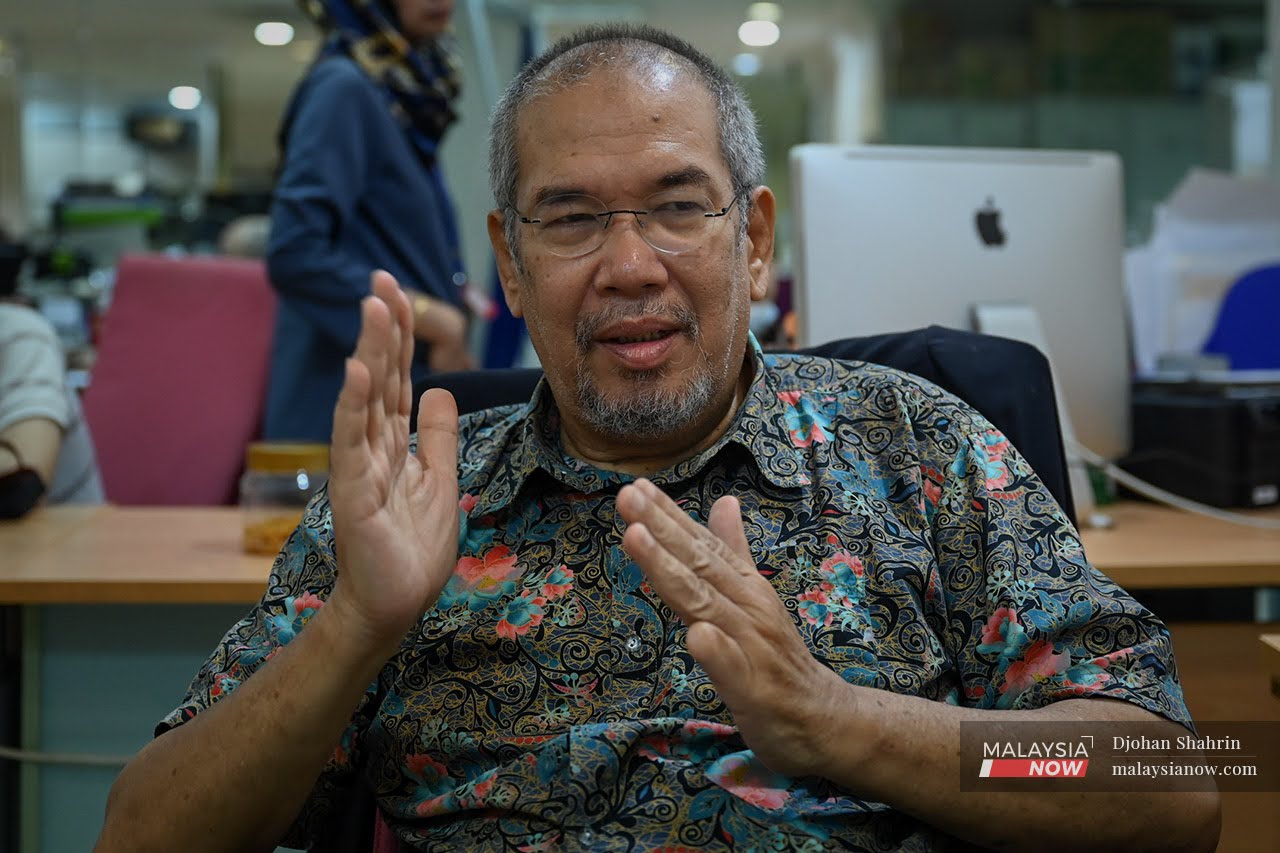Signing the deaf and mute away from the margins
A lack of people who understand sign language has left many who have hearing and speaking impediments adrift with no way of communicating with the rest of society.
Just In
Eamienor Zakiah Md Zuki often has trouble getting help when she does her groceries. It’s not that she doesn’t want to ask – rather, she has trouble finding someone who can understand her.
Eamienor, who is hearing impaired, communicates primarily in sign language.
“When they realise I’m using sign language, they try to avoid me and ask other staff to help instead,” she said to MalaysiaNow.
Whenever this happens, she follows them and tries again, although sometimes she must resort to typing out her questions on her mobile phone.
Eamienor is just one of many Malaysians who have hearing and speaking impediments.
For them, communication with so-called normal people depends greatly on whether an interpreter can be found to mediate.
But there are only 95 sign language interpreters registered under the Malaysian Federation of the Deaf (MFD) compared to 40,389 hearing-impaired people with disabilities, known as OKU, recorded with the welfare department last year.

Eamienor, the secretary of MFD, said knowledge and awareness about the importance of sign language is still lacking in society.
She said even some parents with deaf or mute children wash their hands of them, placing the responsibility of educating them solely with their teachers.
“I was a teacher at the Selangor School for the Deaf for nine years,” she told MalaysiaNow.
“There were some parents who never learned how to communicate with their children using sign language.”
She said some parents left everything to the teachers, or hoped for a miracle which would allow their children to regain their hearing, or they would send their children for cochlear implant procedures which could cost RM100,000 or more.
“Parents should accept their children whatever their condition because that their responsibility and what they are entrusted to do,” she said.
“Take the time to learn sign language so that these children do not feel isolated from society.”
Efforts to develop the use of sign language
When the movement control order to curb the spread of Covid-19 was announced, MFD began preparing online courses for sign language, an initiative introduced under the women, family and community development ministry and launched by its minister Rina Harun.
Through the MySign programme, sign language courses are held online through the Facebook account of the Social Institute of Malaysia.
Attendees include those from organisations such as the welfare department and Microsoft Malaysia.

One of the programme’s instructors, Helen Low, is a teacher at MFD. She is seen as a veteran with 20 years of experience.
Speaking to MalaysiaNow, she said teaching sign language online is challenging as not everyone has the necessary equipment such as laptops or mobile phones.
“This complicates the teaching session,” she said.
The situation becomes even more challenging when she wants to call on someone to answer a question.
“I need to spell out their names using sign language until they realise that I’m calling them,” she said.
At any one session, Low has more than 10 students.
But she is driven by a passion to develop the use of sign language within the community so that those who are deaf or mute are still included.

Mohamad Sazali Shaari, executive director of MFD, is also concerned about the lack of awareness about the importance of sign language to the OKU community.
“People think sign language is like the signals used in pantomimes or by traffic police,” he said.
This misunderstanding needs to be addressed by raising awareness about the equal rights of all individuals under the Federal Constitution, he added.
“With development should come a change in mindset, not based on compassion but rather on rights and equality.”
Fariza Deraman, who has been an interpreter with MFD for 10 years now, said many try to avoid having conversations with those who are deaf or mute.
“Sometimes I go with them to public places like fast food restaurants to see how they communicate,” she said.
“People are usually surprised at first, maybe because they never thought that deaf people would be brave enough to go out in public.”
But Fariza, who is also a sign language interpreter with Bernama TV, said society needs to realise that these people are now brave enough and independent enough to go about by themselves without needing help from others.
Subscribe to our newsletter
To be updated with all the latest news and analyses daily.



